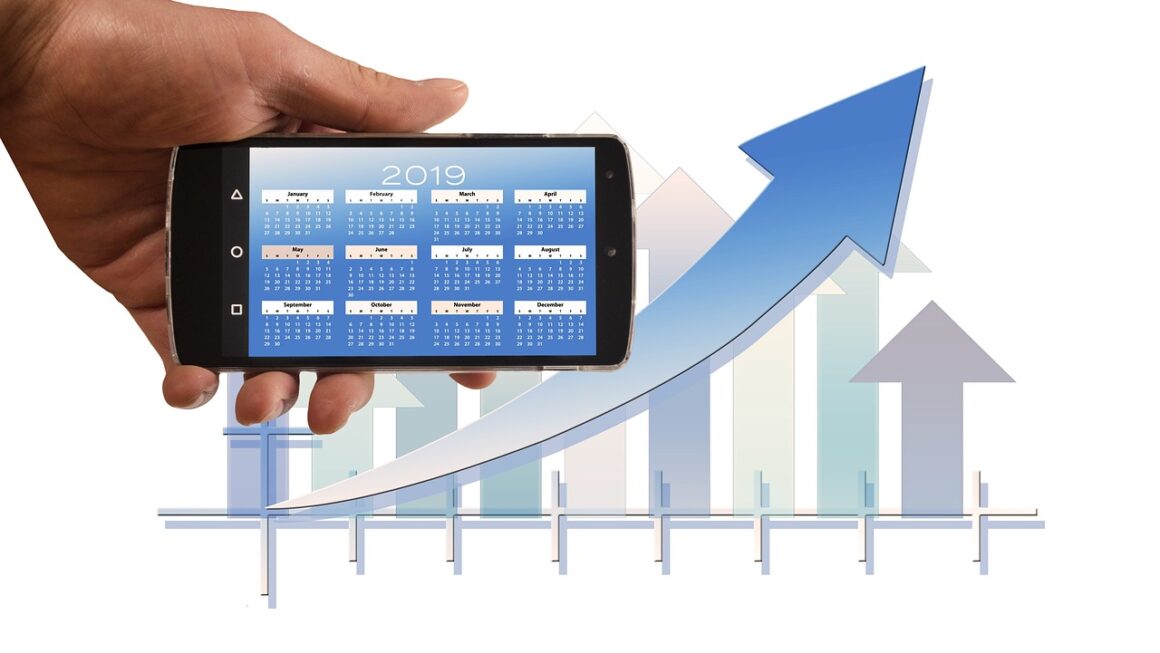Time is a precious resource, and effectively managing it is crucial for both personal and professional success. In today’s fast-paced world, relying on memory alone is simply not enough. That’s where calendar tools come in, offering a structured and organized way to keep track of appointments, deadlines, and important events. Choosing the right calendar tool can significantly boost your productivity, reduce stress, and ensure you never miss a beat. This guide dives deep into the world of calendar tools, exploring their benefits, features, and how to choose the perfect one for your needs.
The Power of Calendar Tools
Calendar tools have evolved far beyond simple date reminders. They are now sophisticated platforms designed to streamline scheduling, enhance collaboration, and boost overall productivity. Integrating a calendar tool into your daily routine can bring significant advantages.
Improved Time Management
- Centralized Scheduling: All your appointments, meetings, and tasks are consolidated in one place, providing a clear overview of your schedule.
- Prioritization: Many calendar tools allow you to prioritize tasks and events, ensuring that you focus on what matters most.
- Time Blocking: Dedicate specific blocks of time for certain activities, fostering better concentration and minimizing distractions. For example, dedicate 9-11 AM daily for focused work and 2-3 PM for responding to emails.
- Reminders and Notifications: Set reminders to avoid missing important deadlines or appointments. Configure reminders for 15 minutes, 1 hour, or even a day before an event, depending on its importance.
Enhanced Collaboration
- Shared Calendars: Easily share your calendar with colleagues, family members, or clients for streamlined scheduling and coordination.
- Meeting Scheduling: Simplify the process of finding mutually convenient meeting times with integrated scheduling features. Some tools, like Calendly, allow others to book time slots directly on your calendar based on your availability.
- Resource Management: For businesses, calendar tools can manage shared resources like meeting rooms or equipment, preventing scheduling conflicts.
Increased Productivity
- Reduced Stress: Having a clear and organized schedule can alleviate stress associated with missed deadlines or double bookings.
- Better Focus: By planning your day in advance, you can minimize distractions and focus on the task at hand.
- Improved Efficiency: Calendar tools help you optimize your time, allowing you to accomplish more in less time. A study by McKinsey found that improving time management skills can increase productivity by up to 25%.
Popular Calendar Tools: A Comprehensive Overview
The market offers a wide range of calendar tools, each with its own unique features and benefits. Here’s a look at some of the most popular options:
Google Calendar
- Free and Accessible: A widely used, free option that’s readily accessible on various devices.
- Integration with Google Workspace: Seamlessly integrates with other Google services like Gmail, Google Meet, and Google Drive.
- Shared Calendars: Easily share calendars with individuals or groups.
- Reminders and Notifications: Customizable reminders via email, pop-up notifications, and mobile alerts.
- Example Use Case: A freelancer using Google Calendar to manage client appointments, track project deadlines, and schedule personal errands.
Microsoft Outlook Calendar
- Professional and Feature-Rich: A powerful calendar tool commonly used in business environments.
- Integration with Microsoft 365: Integrates seamlessly with other Microsoft Office applications.
- Meeting Scheduling: Advanced meeting scheduling features, including room booking and attendee availability tracking.
- Task Management: Built-in task management features to keep track of deadlines and responsibilities.
- Example Use Case: A marketing team using Outlook Calendar to coordinate campaigns, schedule meetings, and manage project timelines.
Apple Calendar
- Simple and Intuitive: A user-friendly calendar app pre-installed on Apple devices.
- iCloud Integration: Syncs seamlessly across all Apple devices via iCloud.
- Shared Calendars: Allows you to share calendars with family and friends.
- Siri Integration: Schedule events and appointments using Siri voice commands.
- Example Use Case: A student using Apple Calendar to track class schedules, assignments, and extracurricular activities.
Calendly
- Simplified Scheduling: A dedicated scheduling tool designed to streamline appointment booking.
- Customizable Scheduling Pages: Create personalized scheduling pages with your availability and preferences.
- Integration with Other Calendars: Integrates with Google Calendar, Outlook Calendar, and other popular calendar tools.
- Automated Reminders: Sends automated reminders to attendees to reduce no-shows.
- Example Use Case: A sales professional using Calendly to schedule product demos and client meetings.
Decoding Crypto Volatility: Beyond HODL Strategies
Other Notable Calendar Tools
- Fantastical: A feature-rich calendar app for macOS and iOS with natural language parsing.
- Any.do: A combined calendar, to-do list, and reminder app.
- Teamup Calendar: A collaborative calendar tool designed for teams and organizations.
Choosing the Right Calendar Tool for You
Selecting the best calendar tool depends on your specific needs and preferences. Consider the following factors:
Features and Functionality
- Integration: Does the calendar tool integrate with other apps you use regularly, such as email, task management software, or CRM systems?
- Collaboration: Do you need to share calendars with others? If so, does the tool offer robust sharing features?
- Customization: Can you customize the calendar’s appearance and settings to suit your preferences?
- Accessibility: Is the calendar tool accessible on all your devices?
- Task Management: Does the calendar include task management features?
User Interface and Ease of Use
- Intuitive Design: Is the calendar tool easy to navigate and use?
- Mobile App: Does the calendar tool have a mobile app for on-the-go access?
- Learning Curve: How long will it take you to learn how to use the calendar tool effectively?
Pricing and Subscription Plans
- Free vs. Paid: Does the calendar tool offer a free version or is it subscription-based?
- Subscription Costs: How much does the subscription cost, and what features are included in each plan?
- Value for Money: Does the calendar tool offer good value for money considering its features and functionality?
Security and Privacy
- Data Encryption: Does the calendar tool encrypt your data to protect it from unauthorized access?
- Privacy Policy: Does the calendar tool have a clear and transparent privacy policy?
- Compliance: Does the calendar tool comply with relevant data privacy regulations, such as GDPR?
Tips for Effective Calendar Management
Once you’ve chosen a calendar tool, follow these tips to maximize its effectiveness:
Color-Code Your Events
- Use different colors to categorize events and tasks. For example, use blue for meetings, green for personal appointments, and red for deadlines.
- This visual cue helps you quickly identify the type of event at a glance.
Set Realistic Timeframes
- Avoid over-scheduling yourself by accurately estimating the time required for each task or event.
- Buffer time between appointments to account for unexpected delays or travel time.
Review Your Calendar Regularly
- Take time each day or week to review your calendar and make necessary adjustments.
- This ensures that your schedule remains accurate and up-to-date.
Integrate Task Management
- Use your calendar to schedule time for completing specific tasks.
- Break down large projects into smaller, manageable tasks and assign them specific time slots.
Utilize Reminders Effectively
- Set reminders for important events and deadlines.
- Customize reminder settings to ensure you receive timely notifications.
Conclusion
In conclusion, calendar tools are indispensable for effective time management, enhanced collaboration, and increased productivity. By carefully considering your specific needs and preferences, you can choose the perfect calendar tool to streamline your schedule, reduce stress, and achieve your goals. Embrace the power of calendar tools and take control of your time today.
Read our previous article: Zero Trust: Rethinking Access Control For Hybrid Work
For more details, visit Wikipedia.




